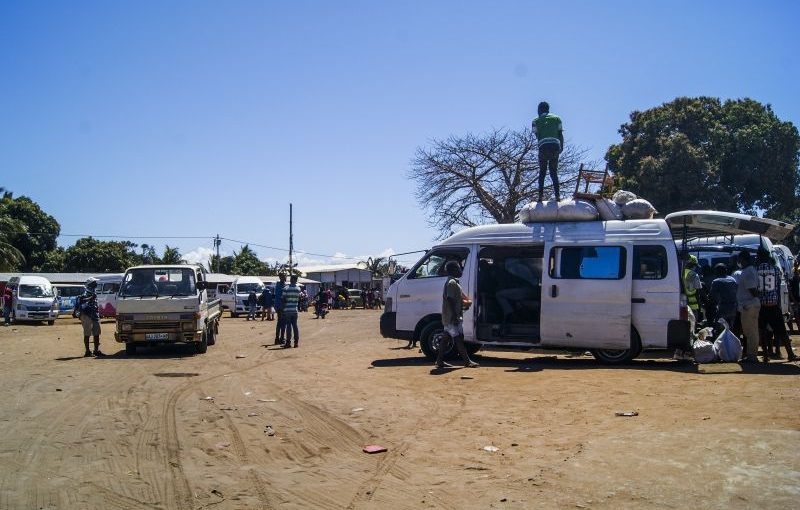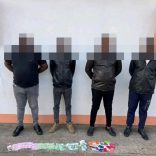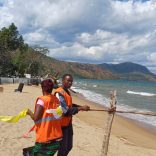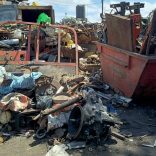Mozambique: Fire destroys EDM warehouse in Pemba - Watch
Between Meluco and Macomia, road safety meant “stepping on the gas” to evade the insurgents

Photo: Lusa
Cassimo Issa’s passenger mini-bus escaped the peak of armed attacks between Meluco and Macomia unscathed, but to evade the insurgents on the daily route it was necessary to drive at 140 kilometres/hour or more, almost double the speed limit.
“They attacked, but we never stopped making the ‘chapa’ [a term used in Mozambique to designate the transport of passengers in mini-buses]. Whenever we arrived at risky areas, the tendency was to speed up,” Issa tells Lusa from the interior of his vehicle parked at the passenger transport terminal in Pemba, the provincial capital of Cabo Delgado in northern Mozambique.
Over nearly a year, Cassimo Issa has carried hundreds of passengers on the 200-kilometre route that separates Pemba from the district headquarters of Macomia, passing through Meluco, a point from which fear gripped everyone inside the vehicle – the section was the scene of several attacks by the insurgent groups operating in Cabo Delgado for almost four years.
Risking his life daily to put food on the table and with the responsibility for the average 20 passengers who travel in his Toyota Hiace, for Cassimo not working was never an option, even with constant alerts from the authorities in various locations on the National Road Number 1 between Pemba and Macomia.
“I have six children, and when I travel there, I can bring ‘madjimbe’ [a type of food similar to cassava, which is common in the region] for the family’s breakfast,” Cassimo explains.
Although it is an ordeal for Cassimo and for so many other drivers who have to speed through the 90 kilometres separating Meluco from Macomia, the situation is more complex for those who have to manage passengers’ anxiety: the [fare] collectors.
“There is no way, we are working anyway. There is risk, but we have to try to [earn] the bread,” collector Ussene Mário, sitting at the door of his mini-bus, tells Lusa.
Ussene has now been on this same route for two years, and has bad memories when it comes to the armed attacks in Cabo Delgado.
“When they entered Macomia in the first attack, I was there. My colleague, who was a driver, and his collector, lost their vehicle and were shot dead. He [the collector] was my friend,” Mário relates.
Despite bad memories, hope is today returning to the horizon of those who have always travelled with fear on roads in the north of Cabo Delgado, with Rwanda and the Southern African Development Community (SADC) mobilising to stop the insurgency that has been ravaging the province.
“In the last few days we are already getting some sleep. For almost a month, we have not heard that they [the armed groups] have appeared in other places. Everything is a little more reassured,” says Ernesto Carlos, another transporter on the route between Pemba and Macomia.
The fight against insurgents in Cabo Delgado gained new impetus when, ten days ago, joint forces from Mozambique and Rwanda reconquered the strategic port town of Mocímboa da Praia, which had been in the hands of the rebels for more than a year, and was considered one of the groups’ bases.
Armed attacks by insurgents in northern districts of Cabo Delgado cost more than 3,100 lives, according to the ACLED conflict registration project, and displaced more than 817,000, according to Mozambican authorities.












Leave a Reply
Be the First to Comment!
You must be logged in to post a comment.
You must be logged in to post a comment.